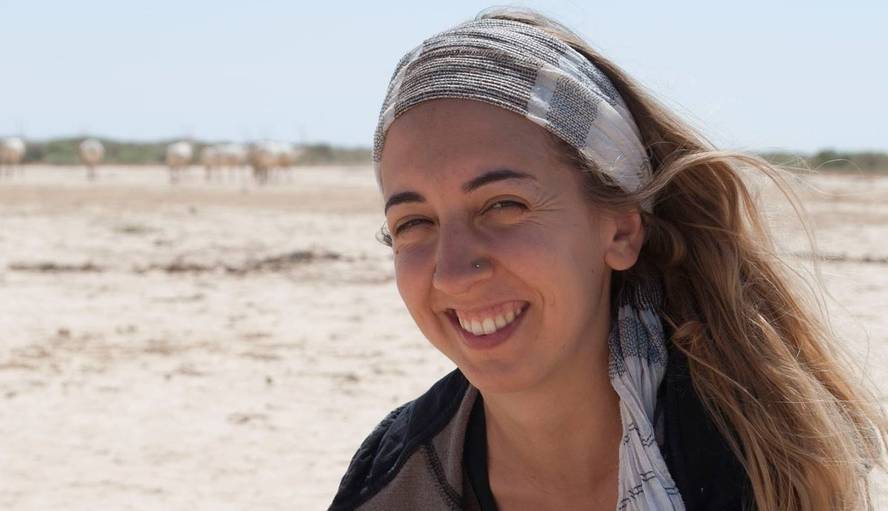"The first time I went to Egypt I cried excited"
Scientific subjects rarely reach the general media. But there are exceptions, and one of them has been the latest research by Amaia Arranz Otaegui: in the area that today is Jordan, they have shown that 14,000 years ago they made bread in the form of a talo.
Arranz is satisfied with the dissemination of research and gives great importance to dissemination: "Most of the investigations do not reach society. The work of researchers is to socialize our work; in short, it is a way to return to society what we have put to finance our research." He says that to be a good disseminator one must learn, but to begin with, it is enough to have will: "With this research I have been called by many media and it has been a very nice experience." So nice that I would like to continue deepening in the dissemination.
Although he is perceived to like dissemination, he shows even more passion when talking about research. He has recognized that since childhood he liked paleontology, archaeology, etc. : "My brother had some fossils with which I was going. With Egypt I was fascinated, I read everything. In the end, when I was fifteen, I managed to go to Egypt with my mother and started crying in the museum, excited."
Charm of the Middle East
I was sure I wanted to go that way and to do this I went to study History to Barcelona, because there were very good teachers and I wanted to get away from home. At the end of the degree he applied for a grant from the Basque Government to carry out the master's degree and thesis. "The question was that I couldn't choose the subject, I liked everything. For example, I spoke to Paco Etxeberria... Just then I was invited to an excavation in Syria, with a team from Barcelona, in which were Juan José Ibáñez, an important researcher from Barcelona, and Lidia Zapata, who has developed the archobotany in Euskal Herria. And they proposed to me the subject of the thesis: to investigate their vegetable remains, the origin of agriculture and all that. It seemed to me that this topic was very studied and that everything was known, but I said yes."
Thus began the link with the Middle East. Until the war in Syria broke out, he moved every year to the site and since then moved to Jordan. He has also visited Lebanon and has always returned to the Middle East. "From there I return with pain, because there I leave more friends than companions".
Not everything is sweet, but it has also touched her to live unpleasant situations, especially in Iran, for being a woman: "She is very hierarchical and, if you are a woman, you are below everyone. I was less bad than I was a doctor, if not, they would not take me into account at all. And yet, they did not allow me to do anything alone, I had no freedom." In Jordan, however, the situation is different, and there it has no problems to work in front of researchers in the area. "Those who command are all men, but that is also today in Europe."
She also finds other difficulties, not for being a woman, but for putting upside down what is written. "Showing that bread was made in the Paleolithic goes against what was thought. But it is not the only example, on other occasions we have shown that the idea was wrong and they do not want to accept it. For example, they continue to say that plants were domesticated in Turkey for the first time, although our discoveries have shown that this is not the case. There are great resistances." However, Arranz does not remain silent and with his arms crossed, and will devote himself to investigating with as much passion as until now to know and make known his past.Born in Tolosa in 1987. After graduating in History, he completed his Master in Quaternary at UPV. During his doctorate, he worked in Arqueobónica, exploring the plants of several sites in the Middle East. He is currently a postdoctoral researcher at the University of Copenhagen and continues to investigate the hunter-gatherer/farmer transition.







